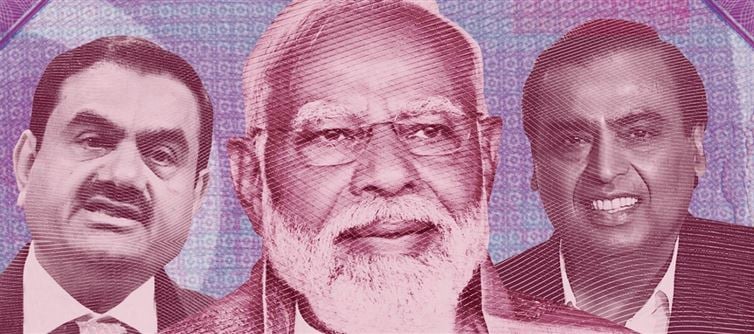
India’s Russian oil Windfall: A Boon for Corporations, a Bust for Consumers?
In a revealing thread posted on X by vishnu Agarwal (@vishnuagarwal64), a startling claim has emerged, challenging the narrative around India’s strategic purchase of discounted Russian oil. The thread begins with a provocative statement citing U.S. Treasury Secretary Scott Bessent, who alleges that while india saved billions by importing cheap Russian crude, the benefits never trickled down to the average citizen. Instead, an estimated $16 billion allegedly landed in the pockets of a few wealthy families through resale profits, raising questions about transparency and equity in one of India’s most significant economic maneuvers since the ukraine war began.
Agarwal’s thread meticulously unravels the story, starting with the Oilfields Bill 2024, which eased business operations for investors like ExxonMobil and Petrobras, ostensibly to bolster energy security. However, the promised relief at the pump—where petrol and diesel prices remain stubbornly high at ₹95 and ₹88 respectively—never materialized, despite discounts of $5 to $30 per barrel on Russian oil. The analysis points to state-owned oil companies, whose profits soared from ₹3,400 crore to ₹86,000 crore in a year, with bpcl seeing a 1,300% profit surge, suggesting the discounts were absorbed into corporate gains rather than public relief. Private refiners like reliance and Nayara Energy further capitalized by exporting refined products to europe at a premium, exploiting a lucrative loophole in global sanctions.
The thread concludes with a damning assessment: the windfall from discounted oil has been privatized by corporations and nationalized into government coffers, which collected ₹4.7 lakh crore in fuel taxes annually. Agarwal argues that this closed-loop system, where high prices ensure revenue for both companies and the state, leaves the indian consumer out of the equation. With crude prices at a four-year low and recent liquidity measures from the RBI, the post questions why fuel price cuts haven’t followed, especially with an additional 5% discount from russia on the table. Referencing an earlier thread from march 2025, Agarwal calls for fuel reforms, igniting a debate on whether India’s economic strategy prioritizes national prosperity or elite enrichment
In a revealing thread posted on X by vishnu Agarwal (@vishnuagarwal64), a startling claim has emerged, challenging the narrative around India’s strategic purchase of discounted Russian oil. The thread begins with a provocative statement citing U.S. Treasury Secretary Scott Bessent, who alleges that while india saved billions by importing cheap Russian crude, the benefits never trickled down to the average citizen. Instead, an estimated $16 billion allegedly landed in the pockets of a few wealthy families through resale profits, raising questions about transparency and equity in one of India’s most significant economic maneuvers since the ukraine war began.
Agarwal’s thread meticulously unravels the story, starting with the Oilfields Bill 2024, which eased business operations for investors like ExxonMobil and Petrobras, ostensibly to bolster energy security. However, the promised relief at the pump—where petrol and diesel prices remain stubbornly high at ₹95 and ₹88 respectively—never materialized, despite discounts of $5 to $30 per barrel on Russian oil. The analysis points to state-owned oil companies, whose profits soared from ₹3,400 crore to ₹86,000 crore in a year, with bpcl seeing a 1,300% profit surge, suggesting the discounts were absorbed into corporate gains rather than public relief. Private refiners like reliance and Nayara Energy further capitalized by exporting refined products to europe at a premium, exploiting a lucrative loophole in global sanctions.
The thread concludes with a damning assessment: the windfall from discounted oil has been privatized by corporations and nationalized into government coffers, which collected ₹4.7 lakh crore in fuel taxes annually. Agarwal argues that this closed-loop system, where high prices ensure revenue for both companies and the state, leaves the indian consumer out of the equation. With crude prices at a four-year low and recent liquidity measures from the RBI, the post questions why fuel price cuts haven’t followed, especially with an additional 5% discount from russia on the table. Referencing an earlier thread from march 2025, Agarwal calls for fuel reforms, igniting a debate on whether India’s economic strategy prioritizes national prosperity or elite enrichment




 click and follow Indiaherald WhatsApp channel
click and follow Indiaherald WhatsApp channel